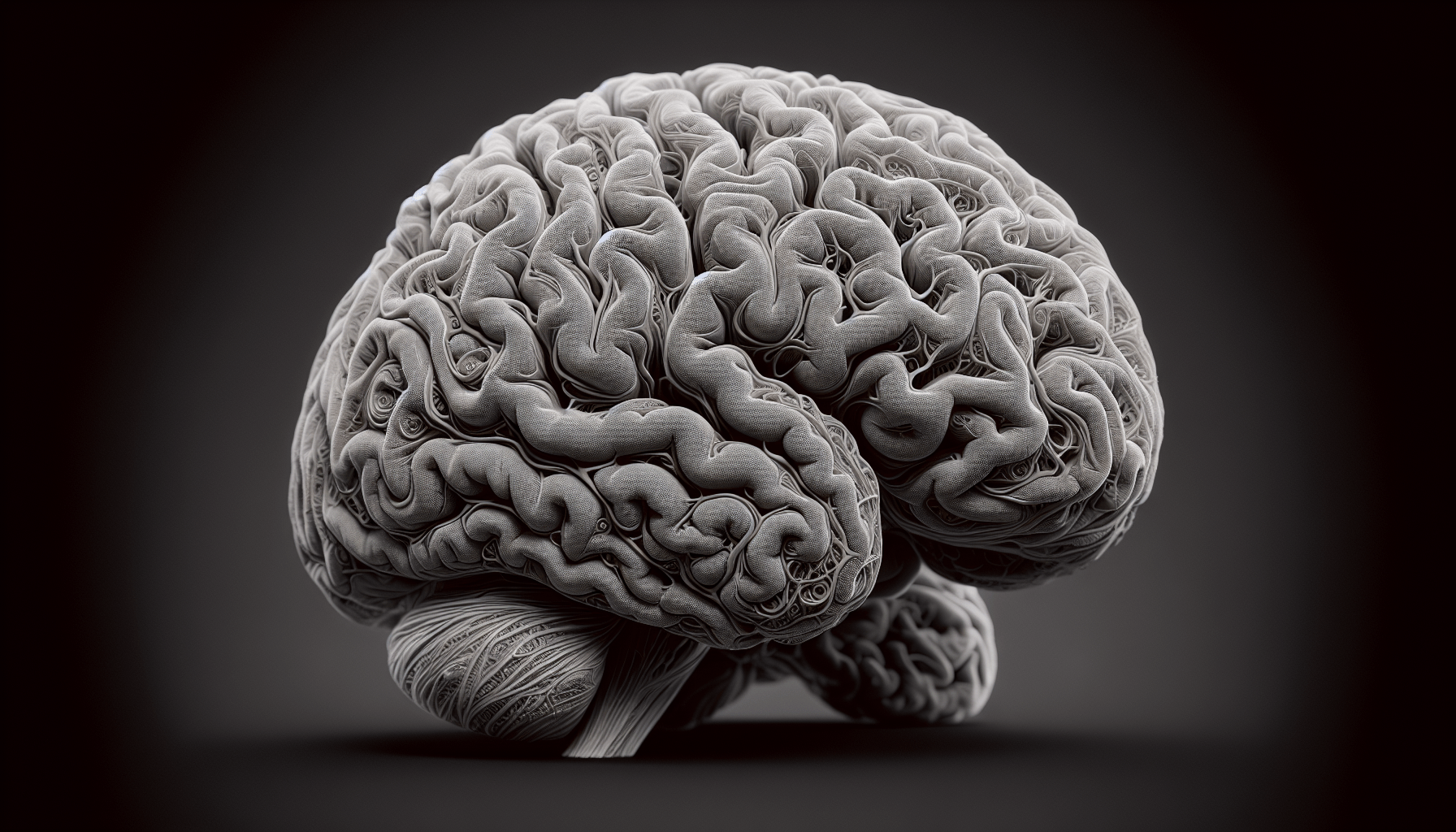Hey there! Have you ever wondered if there's a certain age range when cognitive decline is more likely to happen? It's a fascinating topic to explore, and in this article, we'll dive into the age range of cognitive decline. We'll skip the general background information and provide you with some in-depth coverage on this subject. So, get ready to unravel the mysteries of cognitive decline and discover if there's a specific age range that we should be more aware of. Let's get started!
Understanding Cognitive Decline
Cognitive decline refers to the gradual deterioration of cognitive functioning, including memory, thinking skills, and judgment. As individuals age, it is not uncommon to experience some degree of cognitive decline. It is important to understand the definition, signs and symptoms, as well as the potential risk factors associated with cognitive decline.
Definition of Cognitive Decline
Cognitive decline is a normal part of the aging process. It refers to the gradual and natural decline in cognitive abilities that occurs as individuals grow older. It can affect various aspects of cognition, including memory, attention, processing speed, and problem-solving skills. While some decline is expected with aging, significant cognitive decline can interfere with daily activities and quality of life.
Signs and Symptoms of Cognitive Decline
Recognizing the signs and symptoms of cognitive decline is crucial in identifying potential issues early on. Some common signs include:
- Memory loss: Forgetting important dates, events, or frequently misplacing objects.
- Difficulty with problem-solving: Struggling with tasks that require planning and organizing.
- Language difficulties: Struggling to find the right words or following conversations.
- Disorientation: Getting lost in familiar surroundings or experiencing difficulty with spatial awareness.
- Impaired judgment: Making poor decisions or falling for scams more easily.
- Changes in mood or behavior: Increased irritability, anxiety, or social withdrawal.
It is important to note that experiencing these symptoms does not automatically indicate the presence of cognitive decline. Other factors such as stress, sleep deprivation, or certain medications can temporarily affect cognitive function.
Potential Risk Factors for Cognitive Decline
While cognitive decline is a natural part of aging, certain factors may increase the risk or accelerate cognitive decline. These risk factors include:
- Age: Advancing age is the most significant risk factor for cognitive decline. The risk increases substantially after the age of 65.
- Genetics: Family history of neurological diseases, such as Alzheimer's disease, may increase the risk.
- Chronic conditions: Conditions like diabetes, heart disease, and obesity have been associated with an increased risk of cognitive decline.
- Lifestyle factors: Sedentary lifestyle, poor diet, smoking, excessive alcohol consumption, and lack of mental stimulation may contribute to cognitive decline.
- Mental health: Conditions like depression, anxiety, and chronic stress can impact cognitive function.
Identifying these risk factors can help individuals take appropriate measures to mitigate the risk and potentially slow down cognitive decline.
Cognitive Development in Early Life
Cognitive development begins early in life and plays a crucial role in shaping an individual's overall cognitive abilities. Understanding the process of brain growth and maturation in infancy and childhood, as well as the cognitive milestones reached during early development, provides insight into the foundation of cognitive abilities.
Brain Growth and Maturation in Infancy and Childhood
During infancy and childhood, the brain undergoes remarkable growth and maturation. Neural connections are formed and strengthened through a process called synaptic pruning, which helps refine cognitive function. This period is critical for the development of language skills, attention, memory, and problem-solving abilities.
Cognitive Milestones in Early Development
As children grow and develop, they reach important cognitive milestones. These milestones include the development of object permanence, symbolic thinking, language acquisition, and the ability to understand cause-and-effect relationships. Meeting these milestones is indicative of a healthy cognitive development and lays the groundwork for future cognitive abilities.
Effects of Nutrition and Environment on Cognitive Development
Nutrition and environmental factors play a significant role in cognitive development during early life. Proper nutrition, including a balanced diet with essential nutrients, is crucial for optimal brain growth and function. Adequate stimulation and a nurturing environment, including exposure to language and cognitive challenges, also contribute to cognitive development in early life.
Mental Acuity in Adolescence and Early Adulthood
Adolescence and early adulthood are periods characterized by significant cognitive changes and peak cognitive performance. Understanding these cognitive changes, factors that impact cognitive health during this age range, and methods for preserving cognitive health is important for individuals in this stage of life.
Cognitive Changes During Adolescence
Adolescence is a time marked by rapid changes in cognitive abilities. The brain continues to mature, and individuals develop more advanced thinking skills, such as abstract reasoning and problem-solving. However, cognitive control and decision-making processes may still be developing, leading to potential risk-taking behaviors.
Peak Cognitive Performance in Early Adulthood
Early adulthood is often considered the peak of cognitive performance. Cognitive abilities, including memory, attention, and reasoning, are at their highest during this period. Individuals in their 20s and 30s typically experience enhanced information processing and quick cognitive responses.
Factors That May Impact Cognitive Health in This Age Range
Despite the peak cognitive performance in early adulthood, certain factors may impact cognitive health during this age range. Chronic stress, lack of sleep, substance abuse, and unhealthy lifestyle habits can all contribute to cognitive decline. It is important to develop and maintain healthy habits during this period to promote long-term cognitive health.
Cognitive Stability in Midlife
Midlife is often characterized by stability in cognitive functions. While some cognitive decline may occur, the maintenance of cognitive functions and challenges faced during this stage play a significant role in cognitive health.
Maintenance of Cognitive Functions in Midlife
During midlife, individuals typically experience stability in cognitive functions. Memory, attention, and problem-solving abilities remain relatively intact. However, it is important to note that certain cognitive processes, such as processing speed and fluid intelligence, may start to decline gradually.
Challenges to Cognitive Health During Midlife
Midlife is a period marked by various challenges that can impact cognitive health. Work-related stress, caregiving responsibilities, hormonal changes, and lifestyle factors can all have an impact on cognitive abilities. The ability to manage and adapt to these challenges can contribute to maintaining cognitive health during midlife.
Methods for Preserving Cognitive Health in Midlife
To preserve cognitive health during midlife, individuals can adopt certain strategies. Engaging in intellectually stimulating activities, maintaining a healthy lifestyle, managing stress, and staying socially connected are all effective methods for supporting cognitive function. Regular exercise, a balanced diet, and seeking support when needed can contribute to long-term cognitive stability.
Early Signs of Cognitive Decline in Late Adulthood
Late adulthood is a period where cognitive decline becomes more prevalent. Recognizing the typical cognitive changes during this phase, as well as the early warning signs of significant cognitive decline, can help individuals and their loved ones take appropriate preventive measures.
Typical Cognitive Changes in Late Adulthood
In late adulthood, individuals commonly experience typical cognitive changes associated with the aging process. These changes may include a decline in processing speed, reduced attention span, and slight memory lapses. However, these changes do not necessarily indicate significant cognitive decline and can vary among individuals.
Early Warning Signs of Significant Cognitive Decline
While some cognitive changes are expected in late adulthood, there are certain early warning signs that may indicate significant cognitive decline. These signs include consistent memory loss that impairs daily functioning, difficulty with problem-solving and decision-making, disorientation in familiar places, and changes in behavior or personality. It is important to consult a healthcare professional if these signs are present.
Preventive Measures to Slow Cognitive Decline in Advanced Age
While cognitive decline is a natural part of aging, there are preventive measures that can help slow down its progression. Engaging in mentally stimulating activities, regular physical exercise, a nutritious diet, and maintaining social connections are all associated with better cognitive health in advanced age. It is also important to manage chronic conditions and seek medical advice to address any potential underlying health issues.
Cognitive Decline in the Elderly
In the elderly population, cognitive decline becomes more pronounced, affecting daily functioning and quality of life. Understanding the common patterns of cognitive decline, differentiating between normal aging and neurodegenerative diseases, and exploring interventions and treatments is essential for addressing cognitive impairments in the elderly.
Common Patterns of Cognitive Decline in Elderly Individuals
Cognitive decline in the elderly often follows distinct patterns. Memory loss, difficulty with language and communication, challenges with logical reasoning, and impaired judgment are all common manifestations of cognitive decline. However, it is important to note that every individual's experience may vary.
Differential Diagnosis: Normal Aging vs. Neurodegenerative Diseases
Distinguishing between normal aging and neurodegenerative diseases is crucial in diagnosing cognitive impairments in the elderly. Neurodegenerative diseases like Alzheimer's disease, Parkinson's disease, and vascular dementia present with more severe cognitive decline and distinct symptomatology. Diagnostic procedures and evaluation by healthcare professionals are essential in accurately identifying the underlying cause.
Interventions and Treatments for Cognitive Impairments in Elderly
While there is currently no cure for neurodegenerative diseases, interventions and treatments can help manage and slow down the progression of cognitive impairments in the elderly. These interventions may include cognitive stimulation programs, pharmacological treatments, and environmental modifications aimed at enhancing safety and quality of life.

Impact of Lifestyle on Cognitive Decline
Various lifestyle factors have been found to influence cognitive decline. The relationship between physical activity and cognitive health, nutrition's link to brain health, and the effects of chronic stress and sleep on cognitive function highlight the importance of a holistic approach to maintaining cognitive health.
Relationship Between Physical Activity and Cognitive Health
Regular physical activity has been shown to have positive effects on cognitive health. Exercise improves blood flow to the brain, promotes neuroplasticity, and enhances cognitive function. Engaging in aerobic exercises, strength training, and activities that challenge coordination and balance can all contribute to better cognitive outcomes.
Nutrition's Link to Brain Health
Proper nutrition plays a significant role in maintaining brain health and preventing cognitive decline. A diet rich in fruits, vegetables, whole grains, lean proteins, and healthy fats provides essential nutrients and antioxidants that support brain function. Adequate hydration and moderation in alcohol consumption are also important factors to consider.
Effects of Chronic Stress and Sleep on Cognitive Function
Chronic stress and sleep disturbances can have detrimental effects on cognitive function. Prolonged exposure to stress hormones can impair memory, attention, and decision-making abilities. Furthermore, insufficient sleep or sleep disorders can interfere with cognitive processes and contribute to cognitive decline. Adopting stress management techniques and prioritizing quality sleep are essential for maintaining cognitive health.
Preventing and Slowing Cognitive Decline
Taking proactive steps to prevent and slow down cognitive decline can significantly impact long-term cognitive health. Cognitive training and brain-healthy lifestyle habits, the importance of regular medical checkups, and the role of mental health all play a crucial role in maintaining cognitive function.
Cognitive Training and Brain-Healthy Lifestyle Habits
Engaging in cognitive training activities can help stimulate neural connections and promote cognitive health. Activities like puzzles, learning new skills, and memory exercises can enhance brain function. Additionally, adopting brain-healthy lifestyle habits such as maintaining a balanced diet, staying physically active, getting enough sleep, managing stress, and staying socially engaged can all contribute to cognitive well-being.
Importance of Regular Medical Checkups
Regular medical checkups are essential in detecting and addressing underlying health conditions that may impact cognitive function. Routine examinations, screenings, and discussions with healthcare professionals can help identify risk factors and provide necessary interventions. Managing chronic conditions, monitoring medications, and addressing any physical or mental health concerns are all important aspects of maintaining cognitive health.
Role of Mental Health in Maintaining Cognitive Function
Mental health plays an integral role in overall cognitive function. Conditions like depression and anxiety can have a direct impact on cognitive abilities. Seeking appropriate mental health care, managing stress, engaging in positive social interactions, and prioritizing self-care are all essential for maintaining optimal cognitive function.

Cognitive Decline and Mental Health Disorders
Mental health disorders can be closely intertwined with cognitive decline. Understanding the impact of depression and anxiety on cognitive function, the interplay between dementia, Alzheimer's disease, and cognitive decline, as well as cognitive impairments associated with other mental illnesses, sheds light on the complexity of these conditions.
Impact of Depression and Anxiety on Cognitive Decline
Depression and anxiety can significantly impact cognitive function, leading to difficulties in memory, concentration, and decision-making. These mental health disorders can both contribute to and result from cognitive decline. Proper diagnosis, treatment, and management of depression and anxiety are crucial for maintaining cognitive health.
Interplay Between Dementia, Alzheimer's, and Cognitive Decline
Dementia, including Alzheimer's disease, is a progressive neurodegenerative condition characterized by severe cognitive decline. While dementia can significantly impair cognitive function, it is important to note that not all cognitive decline is indicative of dementia. Accurate diagnosis and proper management are vital in addressing these conditions and providing appropriate care.
Cognitive Impairments Associated with Other Mental Illnesses
Other mental illnesses, such as schizophrenia and bipolar disorder, can also have an impact on cognitive function. These conditions may lead to cognitive impairments in areas such as attention, memory, and executive functioning. Treating the underlying mental illness, along with cognitive rehabilitation strategies, can help individuals regain and maintain cognitive abilities.
Future Research on Cognitive Decline
Ongoing research efforts continue to explore cognitive decline to develop a deeper understanding of the underlying mechanisms. Brain-imaging studies for detecting early cognitive decline, genetic research related to cognitive decline, and potential future therapies highlight the promising avenues for further exploration.
Brain-Imaging Studies for Detecting Early Cognitive Decline
Advancements in brain-imaging techniques have provided valuable insights into the early detection of cognitive decline. Functional magnetic resonance imaging (fMRI), positron emission tomography (PET), and other imaging modalities allow researchers to examine the brain's structure and activity to identify early signs of cognitive decline. Further research in this area holds great potential for improving early diagnosis and interventions.
Genetic Research Related to Cognitive Decline
Genetic research plays a significant role in understanding the genetic factors associated with cognitive decline. Studying specific genes and genetic variations linked to cognitive decline can provide valuable information about individual risk profiles. This knowledge can contribute to the development of personalized interventions and potential preventative measures.
Potential Future Therapies for Cognitive Decline
As research continues, potential future therapies for cognitive decline are being explored. New medications, non-invasive brain stimulation techniques, and novel approaches such as gene therapy and stem cell therapy are currently under investigation. Although further studies are needed, these emerging therapeutic strategies offer hope for future treatments and interventions.
In conclusion, understanding cognitive decline is crucial for individuals of all ages. Recognizing the signs and symptoms, potential risk factors, and impacts on different life stages can help individuals and their loved ones take proactive steps towards maintaining cognitive health. By implementing lifestyle changes, seeking appropriate medical care, and staying mentally and socially engaged, it is possible to promote cognitive well-being and potentially slow down the decline associated with aging. As research continues to advance, we can look forward to a better understanding of cognitive decline and the development of new strategies and interventions to support cognitive health throughout life.




